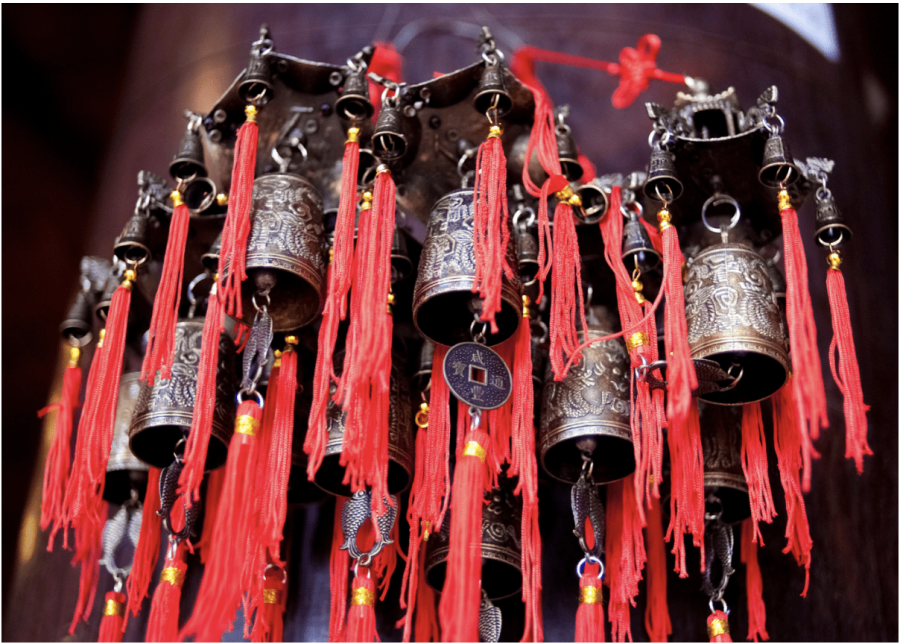
Have you heard of any of these quirky Hong Kong superstitions? Perform these acts and be prepared for misfortune, bad luck, unhappy relationships, and more.
While Hong Kong is renowned for being one of the top markets for finance, it also has a history deep-rooted in tradition and Chinese superstition, and there are times when there seems to be a combative dynamic between modern lifestyle and contemporary culture and heritage. Behind the beautiful Chinese temples are ancient stories, and the markets in Kowloon and parts of Wong Tai Sin are still surrounded by many fortune tellers. Find out some quirky Hong Kong superstitions that don’t seem to make much modern-day sense, but have withstood the test of time.
Quirky superstitions and beliefs in Hong Kong
1. Number four

Hong Kong’s relationship with the number four is fascinating, a cultural nuance that adds just a bit of spice to the city’s vibrant tapestry. It has an eerie phonetic resemblance to the word “death” in both Cantonese and Mandarin. This captivating cultural belief has left a conspicuous mark on Hong Kong’s urban landscape.
Have you ever noticed that some apartment buildings mysteriously lack a fourth floor? That’s not an architectural oversight, Honey! It’s an intriguing nod to this superstition, cementing its status as one of the city’s most recognised and respected beliefs.
2. Leftover rice

A popular one for adults trying to get children to eat, make sure you finish everything in your bowl down to the last grain of rice. Each grain of rice left behind will indicate how many acne scars and spots your future spouse will have.
3. Chopsticks in your bowl

Make sure you never stick chopsticks upright in your food, especially rice, as it resembles incense sticks that are used to burn and pay respects for the dead. Not only will it bring you bad luck but will make you appear to have terrible table manners.
4. Cutting your birthday cake

According to Hong Kong superstitions, if you cut your birthday cake all the way to the bottom, you’ll be doomed to a life of singledom! And let’s be honest, even if you don’t believe in the power of cake-cutting, it’s always better to be safe than sorry. Who knows, maybe it’ll bring you a lifetime of happiness with your soulmate.
5. Gifting a pair of shoes

Don’t ever purchase shoes as a present. Firstly, because shoes in Cantonese sounds like a sigh, so thereby gifting them implies to the person you’re giving the gift, that they are a burden. Secondly, the practical use for shoes is to walk or run in them, so giving your giftee a pair of shoes means they will leave you. Lastly, shoes are stepped on, and can be used to step on others, symbolising poor relationships and bad luck.
6. Clocks as presents

Gifting a clock is incredibly bad luck, as in Chinese the word sounds similar to attending and paying respects at a funeral. Presenting your giftee a clock especially on their day of birth is considered inauspicious and a bad omen.
7. Never bring home a stranger’s umbrella or open it indoors

Umbrellas are known to carry ghosts, because spirits tend to be attracted to shadows. So, avoid opening an umbrella indoors, as the shadow from the umbrella acts as an entrance for ghosts to enter your doors and don’t ever pick up a stranger’s umbrella and bring it home.
8. Villain-hitting

Have you ever seen an elderly woman vigorously attacking and beating a drawing or photograph with her shoe? Guess what – that’s part of her job! Drawings of perceived enemies are created and then given to these women to beat mercilessly. On occasion, the beatings may be accompanied by curses (so treat everyone kindly!). Villain-beating also has worldwide notoriety – Time Magazine named this tradition as the “Best Way to Get It Off Your Chest” in its 2009 Best of Asia feature.
9. Trinkets and bells during the Hungry Ghost Festival

The seventh month of the lunar calendar marks the Hungry Ghost Festival when all gates of the afterlife let loose and roam the Earth. During this time, people should avoid wearing or carrying anything that has bells or trinkets that will make a ding sound, as this is believed to attract spirits. So if your little kitty has a cute bell, sorry boo, it’s gotta come down!
Find out more with our guide to the Hungry Ghost Festival.
10. Dragon gates

You’re not alone if you wondered why there’s a massive square-shaped hole carved in buildings. “What a waste of space,” some would think, but there’s actually a feng shui reasoning behind the architecture. It’s believed that dragons still live in the mountains and these holes allow the beasts to pass through to reach the sea. This act also brings positive energy (known as qi) and the blockage of their passage is believed to bring bad luck.
11. Sweeping at night

Hold that broom right there! According to Hong Kong superstitions, it’s considered a big no-no to sweep your floors once the sun has set. This centuries-old belief stems from the idea that you could inadvertently sweep away all your good luck and prosperity along with the dust.
12. Green hats

The phrase “wearing a green hat” carries a rather unsavoury connotation in Chinese culture, as it implies that a man’s partner is being unfaithful. This quirky Hong Kong superstition has its roots in the language, with the phrase sounding eerily similar to the term for “cuckold” in Mandarin.
13. Books in the bedroom

In local superstition, the word for “book” in Cantonese phonetically mirrors the term for “lose”, leading to the belief that books in the bedroom could cause you to experience losses in life or work. It’s particularly heeded by students during exam season who wouldn’t want to risk their grades. So, maybe it’s time to move that bookshelf to the living room?
[This article was originally published in October 2019 and updated in 2023 by Catherine Pun.]

